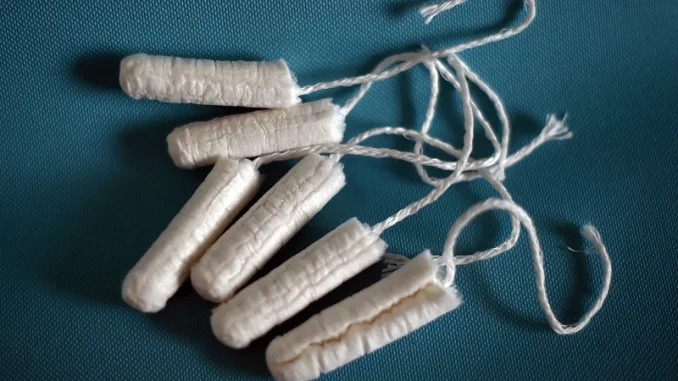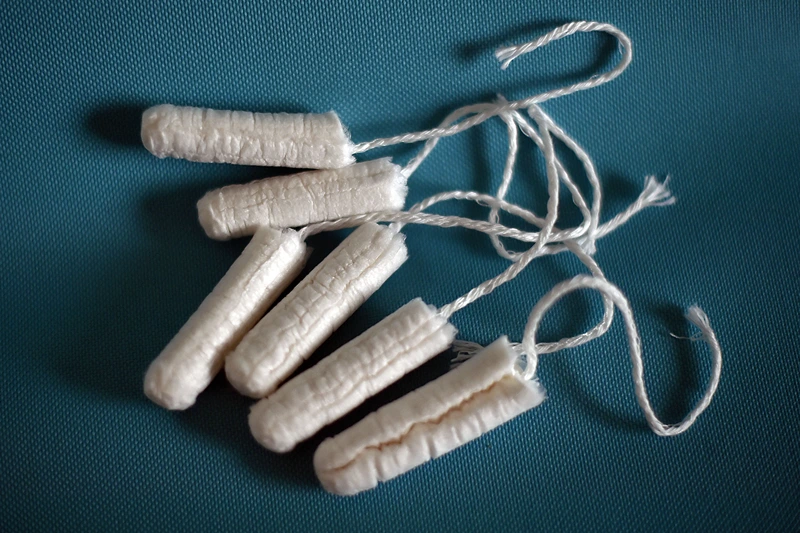

OAN’s Abril Elfi
5:59 PM – Tuesday, July 9, 2024
A recent study found that a number of tampon brands contained lead, arsenic, and other hazardous heavy metals in their products.
Advertisement
According to a study published in Environment International, researchers found “concentrations of several toxic metals” when they examined 18 product lines from 14 different brands.
“Heavy metals bind to parts of your cells that prevent your organs from doing their job. Symptoms of heavy metal poisoning can be life threatening and they can cause irreversible damage,” according to the Cleveland Clinic.
Arsenic, barium, calcium, cadmium, cobalt, chromium, copper, iron, manganese, mercury, nickel, lead, selenium, strontium, vanadium, and zinc were among the specific elements that the researchers tested for. Their findings showed that “measurable concentrations of all 16 metals assessed” were found.
“Lead concentrations were higher in non-organic tampons while arsenic was higher in organic tampons,” the study’s results stated, adding: “No category had consistently lower concentrations of all or most metals.”
Although the tampon brands included in the study were not named, they were said to be available to purchase in the U.S., U.K., and Greece.
“Regulations in the US, EU, and UK protecting consumers from potential contaminants in tampons are nearly nonexistent, and none of these governments requires manufacturers to test their products for harmful chemicals, including metals,” the study continues.
“We cannot yet say that people should not be using tampons. So far what we know is that metals are present in all the samples we tested. However, we do not know yet if metals leach out of the tampon and whether they are absorbed by the body. We therefore cannot yet assess to what extent [if any] metals in tampons contribute to any health problems,” Jenni Shearston, lead author on the study and a postdoctoral scholar at the University of California Berkeley School of Public Health said.
The Food and Drug Administration (FDA) told CBS MoneyWatch that it is now reviewing the study’s findings.
“While the chemical method used indicates these metals are present in the tampons tested in the laboratory, the study does not assess whether any metals are released from tampons when used in the body. It also does not address whether any metal, if released, can be absorbed into the vaginal lining or, subsequently into the bloodstream,” a spokesperson for the agency stated. “We plan to evaluate the study closely and take any action warranted to safeguard the health of consumers who use these products.”
Stay informed! Receive breaking news blasts directly to your inbox for free. Subscribe here. https://www.oann.com/alerts





Be the first to comment